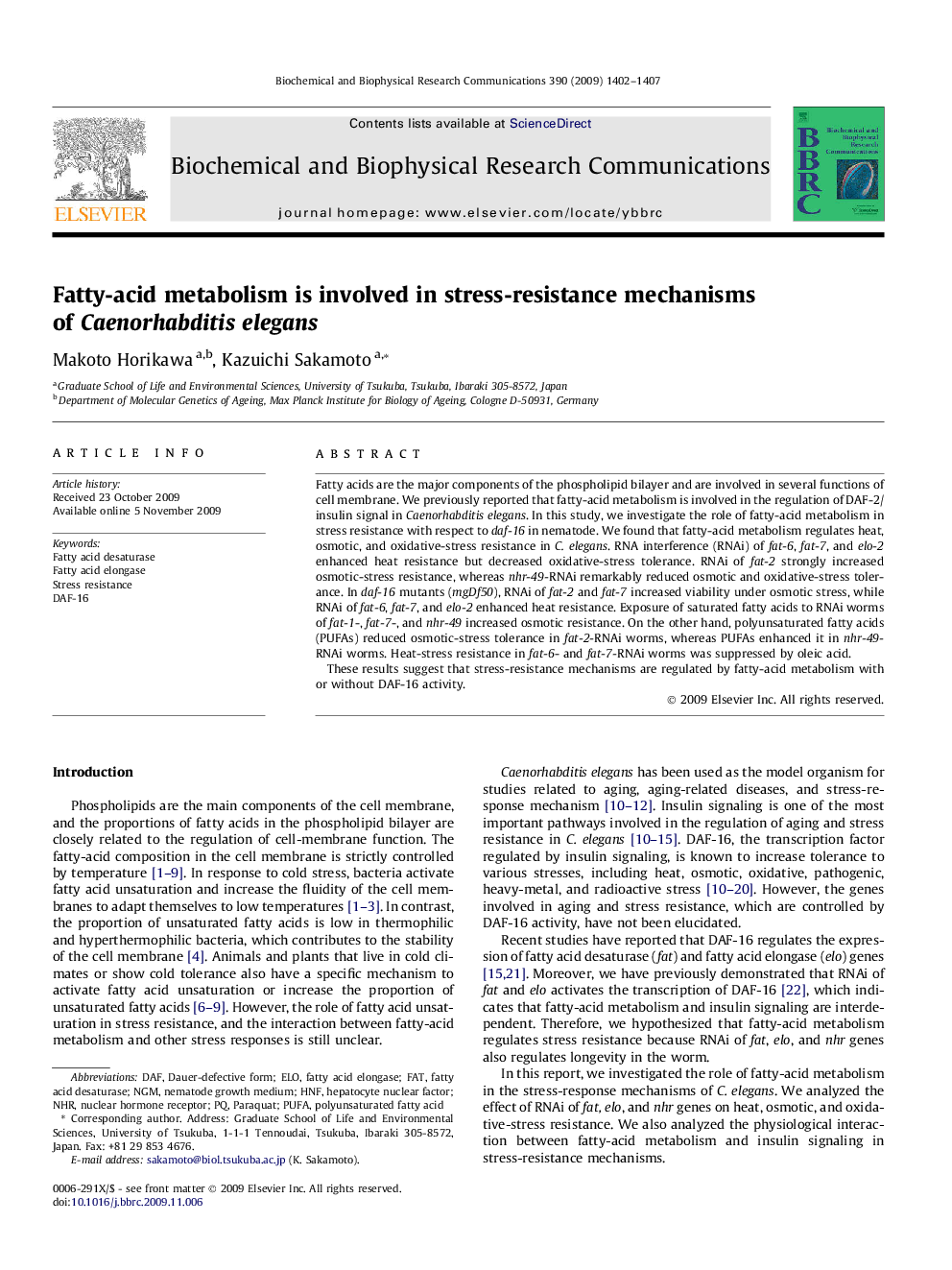| Article ID | Journal | Published Year | Pages | File Type |
|---|---|---|---|---|
| 1932615 | Biochemical and Biophysical Research Communications | 2009 | 6 Pages |
Fatty acids are the major components of the phospholipid bilayer and are involved in several functions of cell membrane. We previously reported that fatty-acid metabolism is involved in the regulation of DAF-2/insulin signal in Caenorhabditis elegans. In this study, we investigate the role of fatty-acid metabolism in stress resistance with respect to daf-16 in nematode. We found that fatty-acid metabolism regulates heat, osmotic, and oxidative-stress resistance in C. elegans. RNA interference (RNAi) of fat-6, fat-7, and elo-2 enhanced heat resistance but decreased oxidative-stress tolerance. RNAi of fat-2 strongly increased osmotic-stress resistance, whereas nhr-49-RNAi remarkably reduced osmotic and oxidative-stress tolerance. In daf-16 mutants (mgDf50), RNAi of fat-2 and fat-7 increased viability under osmotic stress, while RNAi of fat-6, fat-7, and elo-2 enhanced heat resistance. Exposure of saturated fatty acids to RNAi worms of fat-1-, fat-7-, and nhr-49 increased osmotic resistance. On the other hand, polyunsaturated fatty acids (PUFAs) reduced osmotic-stress tolerance in fat-2-RNAi worms, whereas PUFAs enhanced it in nhr-49-RNAi worms. Heat-stress resistance in fat-6- and fat-7-RNAi worms was suppressed by oleic acid.These results suggest that stress-resistance mechanisms are regulated by fatty-acid metabolism with or without DAF-16 activity.
